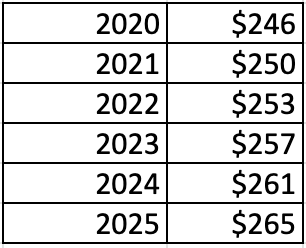Social Cost of Carbon
UC’s Equity Weighted Social Cost of Carbon
The University of California utilizes an equity weighted social cost of carbon in its Climate Action Planning Tool - a tool used by each UC institution and health center to map our fossil fuel reduction plans.
What is the Equity Weighted Social Cost of Carbon?
The social cost of carbon (SCC) is a science-based estimate, in dollars, of the economic damages that result from the impact of each additional ton of CO2 emissions. The SCC incorporates the societal costs of climate change into university investment decisions to reduce campus energy costs and greenhouse gas emissions.
Scientists use “integrated assessment models” to estimate this global impact. Current models do not account for two important equity considerations:
- There is a disparity of income in different regions around the world.
- That a financial change to a person results in a smaller welfare change to a rich person then a poor person. Sometimes referred to as the, “law of diminishing marginal utility.”
In an effort to account for these considerations, the UC is utilizing an equity weighted social cost of carbon. We are currently using the 2020 equity weighted social cost of carbon figure of $246 with a 1.5% escalation rate.

The equity weighted SCC is an evolving number that will change regularly as the science advances and regional data becomes more granular. The UC will continue to monitor its development and update the figures as needed.
Please review our UC SCC Overview document to learn more about the background of this initiative, why we implemented a SCC, the methodology and results of identifying a SCC, greater details on the equity weighting argument, how we’re working to implement the SCC, and additional resources.
What does the equity weighted social cost of carbon look like?
In 2022, the UC introduced the equity weighted social cost of carbon into their Climate Action Planning tool. This tool, used by all UCs, is a financial modeling tool that considers the impacts of diverse climate solutions on (1) capital expenditures, (2) operational expenditures, (3) purchased commodities, and (4) carbon pricing to identify the most cost effective and impactful climate solutions at each UC campus. The equity weighted SCC has been entered into each campuses’ models to provide better accounting for their suite of diverse climate solutions. This paired down example shows the 2022 graph in UC Santa Cruz’s model. UCSC’s solution set for reaching carbon neutrality includes biodiesel, green building, LED lighting retrofit, five year energy efficiency plan, solar energy, clean power program, biogas, and offsets.
Webinars:
May 25, 2023
Implementing a Social Cost of Carbon Throughout UC Energy Related Decision Making Workshop
Folder with Webinar & Slides
If you were 2022 registrants of the Association for the Advancement of Sustainability in Higher Education’s Global Conference on Sustainability in Higher Education, watch our two presentations on this topic presented with our colleges: UC Santa Cruz, UC Davis, Smith College, Princeton, and Cornell University.
(*search the site for "Carbon Price" to find the presentations*)
- Determining a Proxy Carbon Price (Carbon Pricing 101)
- This session is an introduction to carbon pricing and choosing a carbon price.
- Implementing a Proxy Carbon Price (Carbon Pricing 201)
- This session moves beyond determining a price for carbon and explains best practices for implementing a carbon price on your campus.
Additional resources at the bottom of our Overview document
